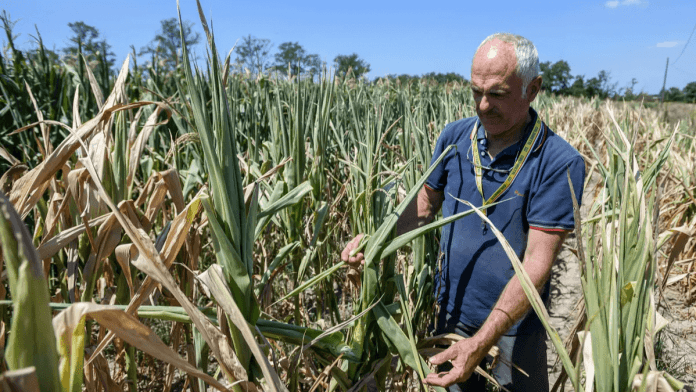News in Brief:
– The European Commission clarifies force majeure rules for farmers facing extreme weather, ensuring they maintain support payments despite inability to fulfill CAP requirements.
– This clarification aims to standardise applications across member states, reduce administrative burden through area-wide assessments using satellite data, and sets a precedent for global agricultural policy adaptation.
A recent communication from the European Commission offers a critical clarification on the use of force majeure in the agricultural sector, aiming to support farmers facing extreme weather events. This move is not only significant for European farmers but also holds valuable insights for the global farming community. Let’s break down the key points and their broader implications.
Understanding force majeure in agriculture
Force majeure refers to unforeseeable and exceptional events beyond one’s control that prevent the fulfillment of contractual obligations. In agriculture, this includes severe droughts, floods, or other extreme weather events.
Farmers unable to meet Common Agricultural Policy (CAP) requirements due to such events can invoke force majeure to maintain their support payments. This concept ensures that they aren’t penalised for circumstances beyond their control.
Key points of the EU communication
- Uniform application across the EU: The Commission’s clarification aims to standardise how force majeure is applied, ensuring fairness and reducing confusion. Member States will confirm severe natural disasters or meteorological events affecting specific areas, enabling a collective response rather than individual claims.
- Reducing administrative burden: By recognising force majeure for entire affected areas, the need for individual evidence and requests is eliminated. This streamlines the process, allowing farmers to focus on recovery rather than paperwork.
- Use of technology: Satellite data and other advanced tools will be employed to identify affected areas. This ensures accurate and efficient delimitation without the need for farm-by-farm assessments.
Global implications for farmers
While this policy is specific to the EU, the principles behind it can inspire similar frameworks worldwide. Farmers everywhere face the unpredictability of climate change, and supportive policies can provide much-needed relief.
Other countries can adopt similar provisions, ensuring that farmers aren’t penalised for natural disasters. This can be crucial in regions prone to extreme weather, such as Nigeria and other parts of Africa.
The use of satellite data and other technologies for assessing agricultural impacts can be a game-changer. Farmers and governments can benefit from precise data to make informed decisions and allocate resources effectively.
Also, simplifying administrative processes through clear policies and technological support fosters a collaborative environment between farmers and authorities. This can lead to more resilient agricultural practices globally.
Facts and data
- Climate Impact on Agriculture: According to the World Bank, climate change could reduce crop yields by 25% by 2050, significantly affecting food security.
- Economic Losses: The Food and Agriculture Organization (FAO) reports that between 2005 and 2015, natural disasters caused over $96 billion in damage to agriculture in developing countries.
- Technological Solutions: NASA’s satellite data has been used to monitor agricultural conditions and predict droughts, helping farmers plan better and mitigate losses.



